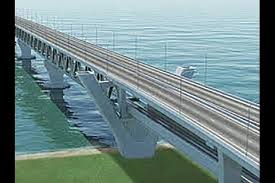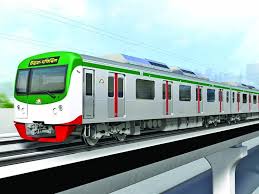Bangladesh Politics: History, Current Landscape & Future Outlook
Bangladesh, a South Asian nation with a population of over 170 million, has a dynamic and often volatile political landscape. Since gaining independence in 1971, Bangladesh politics has been marked by intense rivalries, military interventions, democratic struggles, and rapid socio-economic changes. This article explores the history, current political dynamics, major parties, and what the future may hold for the country.
Historical Overview of Bangladesh Politics

The political journey of Bangladesh began with its liberation from Pakistan in 1971 after a brutal war. The Awami League (AL), led by Sheikh Mujibur Rahman, played a pivotal role in the country’s independence. Following independence, the AL formed the first government, but the country quickly faced economic challenges, political unrest, and authoritarian tendencies.
In 1975, Sheikh Mujib was assassinated in a military coup, leading to a series of military-led governments. General Ziaur Rahman, who later formed the Bangladesh Nationalist Party (BNP), became a dominant figure until his assassination in 1981. Another military ruler, General Hussain Muhammad Ershad, ruled until a mass uprising restored democracy in 1991.
Major Political Parties in Bangladesh

Bangladesh has a multi-party system, but two dominant parties have shaped the nation’s political discourse:
1. Awami League (AL):
Founded in 1949, the Awami League is a center-left political party that led the country’s independence movement. The party emphasizes secularism, nationalism, and social justice. Since 2009, under the leadership of Prime Minister Sheikh Hasina, the AL has maintained power, overseeing significant economic development and infrastructure projects.
2. Bangladesh Nationalist Party (BNP):
Established by Ziaur Rahman in 1978, the BNP is generally considered center-right. It advocates for Bangladeshi nationalism, economic liberalization, and conservative values. The party, led by Khaleda Zia, has faced numerous challenges, including internal splits, legal battles, and diminishing electoral influence in recent years.
Other notable parties include:
-
Jatiya Party (JP): Founded by former President Ershad, often playing a kingmaker role.
-
Jamaat-e-Islami: A controversial Islamist party banned from participating in elections.
-
Left-wing parties and independent candidates also participate but rarely gain national prominence.
Current Political Climate in Bangladesh
The political environment in Bangladesh is deeply polarized. The rivalry between the Awami League and the BNP often dominates public discourse and policy-making. Allegations of election rigging, media suppression, and political violence have frequently surfaced, undermining public trust in democratic institutions.
The 2018 general elections saw the AL secure a landslide victory, winning over 90% of the seats, while the BNP and its allies claimed the election was marred by irregularities. The opposition’s limited role in parliament has led to concerns about authoritarianism and lack of checks and balances.
Civil society organizations and international observers have also raised alarms over:
-
Restrictions on freedom of speech
-
The use of digital security laws to stifle dissent
-
Human rights violations and extrajudicial killings
Economic Progress vs. Democratic Deficit


Despite political challenges, Bangladesh has achieved remarkable economic growth. The country has transformed into one of the fastest-growing economies in Asia, driven by the garment industry, remittances, and infrastructural development. Projects like the Padma Bridge, metro rail systems, and nuclear power plants have boosted the country’s image globally.
However, critics argue that economic progress is being achieved at the cost of democratic freedoms. The lack of a robust opposition, shrinking space for debate, and a centralized power structure have led many to call for electoral reforms and stronger democratic institutions.
Youth and Digital Activism
A notable shift in recent years is the growing role of youth and digital activism in shaping political conversations. Movements like the Shahbagh protests (2013) and the student-led road safety protests (2018) showcased the power of young people in demanding accountability.
Social media platforms have become arenas for political debate, criticism, and mobilization. However, they are also monitored by authorities, and activists have faced arrests under the Digital Security Act.
The Future of Bangladesh Politics
The future of Bangladesh politics will likely depend on several key factors:
-
Electoral Reforms: Ensuring free, fair, and transparent elections can restore public trust in the democratic process.
-
Judicial Independence: Strengthening the rule of law is essential for safeguarding democracy.
-
Political Dialogue: Rebuilding trust between parties is crucial for national unity.
-
Youth Engagement: Harnessing the energy and innovation of young citizens can help reshape political norms.
-
Global Scrutiny: As Bangladesh’s geopolitical importance grows, international pressure may influence domestic policies.
Conclusion
Bangladesh politics is a complex and evolving landscape, reflecting the country’s turbulent history, vibrant citizenry, and rapid modernization. While economic progress is commendable, democratic development must keep pace to ensure sustainable growth and inclusive governance. As the nation prepares for its next elections and future challenges, the call for transparency, accountability, and participation is louder than ever.
